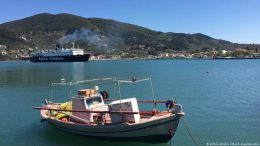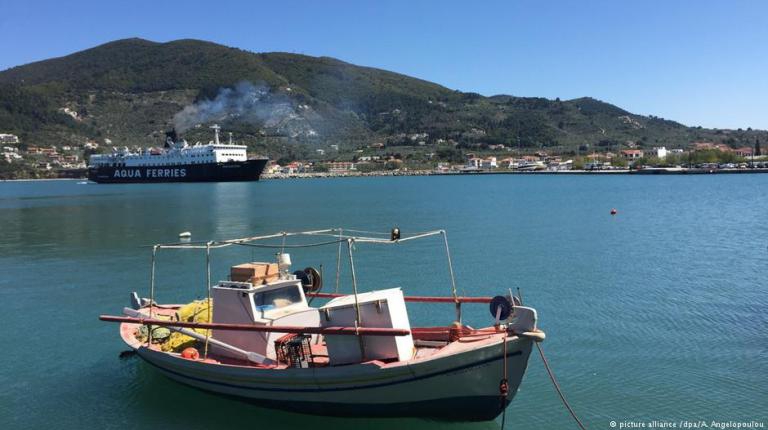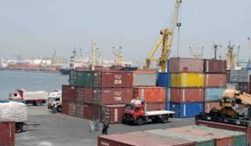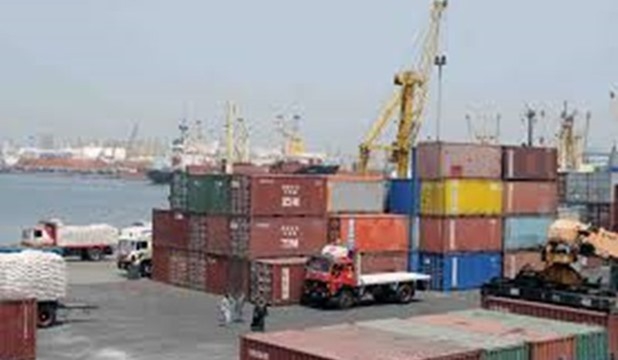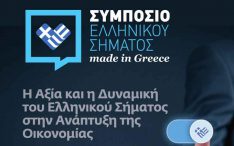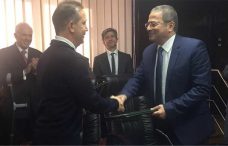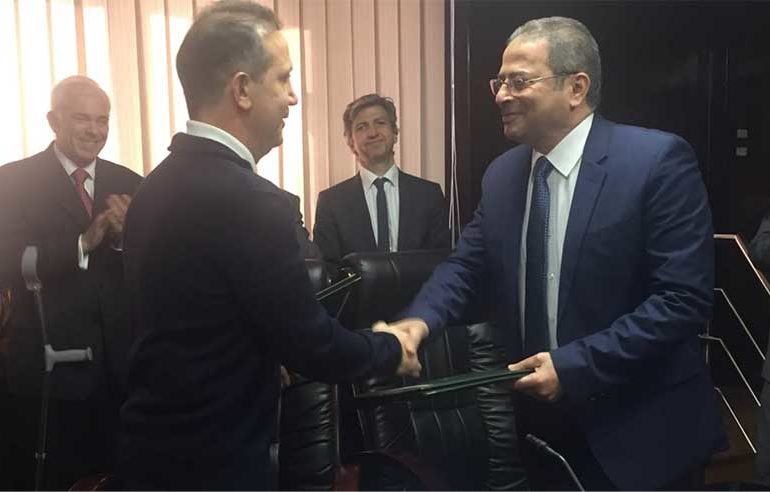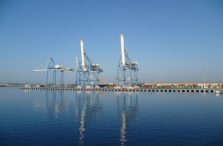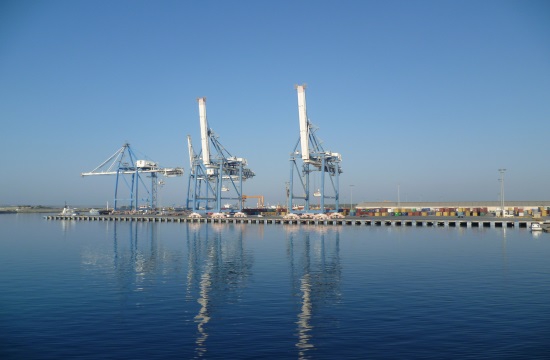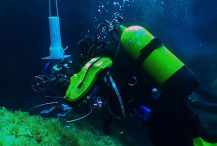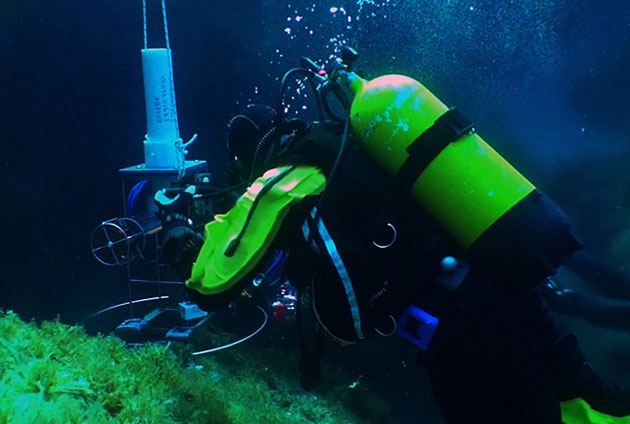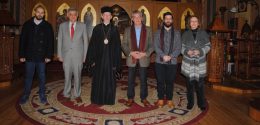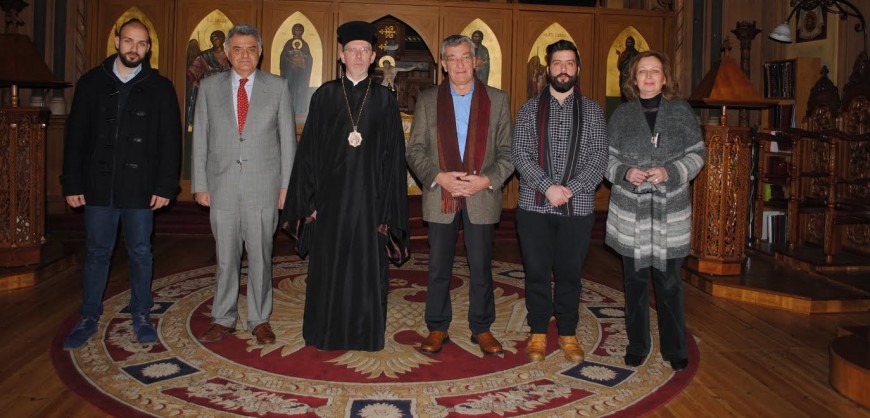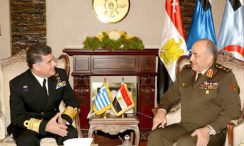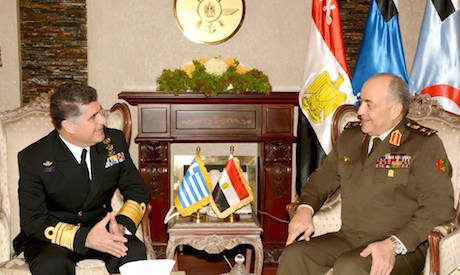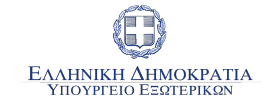 The 2nd Rhodes Informal Ministerial Conference for Security and Stability took place on the 22 and 23 of May 2017, under the theme “Living and Working together in Peace and Stability”. The participating Ministers of Foreign Affairs and High Officials from Albania, Algeria, Bulgaria, Cyprus, Egypt, Greece, Italy, Kuwait, Lebanon, Libya, Oman, Qatar, Romania, Saudi Arabia, Slovakia, Tunisia, United Arab Emirates as well as from the Gulf Cooperation Council and the League of Arab States, had the opportunity to reiterate their determination to promote, amid diverse security challenges for the Eastern Mediterranean, a positive agenda of cooperation for the benefit of their strategically, economically and culturally important neighbourhood, making it a safer place for its people to prosper.
The 2nd Rhodes Informal Ministerial Conference for Security and Stability took place on the 22 and 23 of May 2017, under the theme “Living and Working together in Peace and Stability”. The participating Ministers of Foreign Affairs and High Officials from Albania, Algeria, Bulgaria, Cyprus, Egypt, Greece, Italy, Kuwait, Lebanon, Libya, Oman, Qatar, Romania, Saudi Arabia, Slovakia, Tunisia, United Arab Emirates as well as from the Gulf Cooperation Council and the League of Arab States, had the opportunity to reiterate their determination to promote, amid diverse security challenges for the Eastern Mediterranean, a positive agenda of cooperation for the benefit of their strategically, economically and culturally important neighbourhood, making it a safer place for its people to prosper.
The participants, guided by the “Spirit of Rhodes“, as this emerged in 2016, at the 1st Rhodes Informal Ministerial Meeting and was ever since embraced and frequently invoked by states of the regionand other states, deepened their discussions at the 2nd Ministerial Meeting, on major issues of the Eastern Mediterranean. Their dialogue focused on developing joint initiatives, which will help restore the appropriate conditions for the stability and welfare of the region. The actions to be taken shall complement the work being done by international and regional organizations –such as the UN, the EU, the Arab Leagueand the Gulf Cooperation Council- and the efforts made within institutionalized structures of cooperation – such as the European Neighbourhood Policy and the Union of the Mediterranean.
The participants addressed a broad spectrum of important issues in the Eastern Mediterranean, which due to their transnational nature, call for the joint action of regional actors. Namely, the discussions focused on three main thematic areas:
1. “Common Challenges in our region”
On migration, the participants acknowledged that the Eastern Mediterranean serves as a migratory route for a very large number of illegal migrants and refugees and agreed that it is imperative to address this phenomenon through an integrated approach and by making use of all tools provided for by foreign and security policies, including development assistance.
At the same time, the participants agreed on the need to raise awareness among policy makers, law enforcement bodies and civil society with regard to human traffickingnetworks that take advantage of the massive migratory and refugee flows towards Europe and other countries of the region.
Ontransnationalorganized crimeand drug trafficking, the participants recognized that regions in crisis serve as a breeding ground for such illicit activities threatening the economic, political and cultural development of local societies. In this respect, they stressed the fact that Da’esh and other terrorist groups, as defined by UNSC Resolutions,finances itself by exploiting this type of illicit networks.
Regarding terrorism, the participants underlined the fact that its lethal action has taken a huge toll on human lives in the region of the Eastern Mediterranean, in Europe and beyond.Ongoing conflicts and increased radicalizationperpetuate the phenomenon. The participants agreed that special attention should be given to the stabilization of conflict-ridden areas’ once fighting is over.
Special emphasis was placed by participants on religious tolerance and on preventing the radicalization of youth. The growing number of young and educated, albeit unemployed, people highlights the importance of providing equal opportunities for all to employment and thus to prosperity. Economic progress needs to be coupled with educational programs and initiatives that promote interreligious dialogue and civil solidarity. Once more the participants emphasized the need to adopt a collective and comprehensive approach to address this issue, including encouraging the exchange of students and professors, supporting the programs to develop the educational system in parallel with increasing the efficiency of the economic and technical assistance programs.
2. “Education, Culture and Environment”
The field of educationwas earmarked as a top priority of cooperation. Initial steps have been taken since the 1st Ministerial Conference, in view of establishing a university network for exchanging views and ideas as well as promoting contacts between youth and academia. The participants emphasized the role of culture in countering extremism and promoting religious and racial tolerance.
The participants took stock of the environmental challenges with regard to the sensitive ecosystem of the Mediterranean region. The Mediterranean Sea was acknowledged as a unifying factor that largely contributes to the livelihood and welfare of the people. The participants identified the region as a major transit route for trade and an emerging energy producing center.
Regarding maritime security in the strategically important Mediterranean Sea route, the participants agreed on the importance of freedom of navigation, and the protection of the sea environment.
On energy, the participants highlightedthe positive prospects of new projects in the promising region of the Eastern Mediterranean that will secure energy supply and its diversification. Increasing the share of renewable energy sources in the “energy mix” will contribute to the alleviation of environmental pressures and the sustainable development of the region.
3. “Enhancing security and stability”
The participants agreed on the need to think and act jointly on a positive agenda, to promote deliberations that could result in the next generation of ideas and to facilitate the creation of conditions in which a stable security concept will prevail. In this respect, they discussed the perspective of bestowing the Rhodes Conference the character of a permanent dialogue forum, as a flexible, lean and «soft» instrument, with specific added value nonetheless. Its mission will be to channel common values rather than differences into joint and productive initiatives as a long-term investment for peace, security and stability in the region.
As a general conclusion, the participants stressed theneed for respect of International Law, as a fundamental factor contributing to stability and security in international relations. Respect of International Law entails sovereign equality of states, inviolability of borders settled by Treaties, such as the Treaty of Lausanne,and abstention from interference in other states’ internal affairs.
—–
With the certainty that current security challenges in the Eastern Mediterranean region call for concerted action, the participating countriesdecided toput together a working group composed of senior diplomats. The working group will study the international experience of security organisations such as the OSCE. It will also draw up a plan, in line with the UN resolutions and with the assistance of the regional organizations, in order to help tackle major challenges in the region, namely a) terrorism, b) authoritarianism in relations between states, c) ideological, religious, world view fanaticism and d) outside interference.
The participants decided on a number of joint initiatives, namely:
– To activatea Steering Committee by appointing a liaison at each of their Foreign Ministries, in order to facilitate coordination on all matters relevant to the Rhodes Conferences. The Steering Committee will form a network with the objective to promote the implementation of actionsagreed at Ministerial Conferences. The Committee will also plan thematic meetings in view of preparing the third meeting in Rhodes which will take place at the end of August 2018.
– Topromote cooperation among foreign ministries’ centres for analysis and among other competent ministries,with the aim of combating terrorism,extremism, organised crime anddrug trafficking networks.Lessons learned and best practices will be drawn by the HedayahCenter, the Muslim Council of Elders and the SawabCenter, in UAE, in dealing with, respectively, extremism, sectarian roots of conflicts and combating extremist propaganda via social media.The participants expressed deep appreciation of the role played by Al Azhar and the Egyptian Dar Al Ifta in countering extremists and terrorists narrative, including through their counter extremism observatories and by issuing edicts (fatwas) confronting extremists allegations and spreading moderate Islam messages. Participants acknowledged the potential contribution of specific NGO projects to de-radicalisation, as attested by the results of projects such as those pertaining to women empowerment in rural areas in Tunisia.
– Todevelop a positive agenda on matters pertaining to the sea, and more specifically focusing on security, on the protection of maritime environment and on addressing water security. Moreover, to exploitrelevant innovative sectors that can impart momentum to the participating countries’ economies, including aquaculture, fish farming (pisciculture), coastal and cruise tourism and marine biotechnology.
– To enhance and expand, as per Cyprus’ suggestion, existing bilateral cooperation schemes in the area of blue growth and blue economy including technical maritime education and training,bearing in mind the ongoing cooperation between the University of Nicosia and the Arab Academy of Sciences, Technology and Maritime Transport in Alexandria. Participants will promote the formation of a network of their institutes of marine/maritime training and research, in cooperation with the corresponding university departments –from biotechnology to shipping– for promotion of maritime/marine issues.
– To explore further the idea of cooperation between national maritime search and rescue centres in the Eastern Mediterranean region focusing on the exchange of know-how and best practices in areas such as prevention and management of environmental disasters, safety of off-shore platforms and carrying out joint search & rescue exercises.
– To consider planning and carrying out a joint forum on migration. Its goal would be to analyse ways to deter human trafficking, trafficking in narcotics and weapons, as well as ways to combat organized crime, and especially criminal networks involved in migrant smuggling.
– To continue work being done with regard to establishing a network of universities agreed at the 1st Rhodes Conference. Participants welcomed Lebanon’s willingness to take the lead in moving the process forward.
– To design, with respect to education, intensive seminar programs for young researchers and post-graduate students of all participating countries covering a variety of relevant academic areas such as development, environment, counter-terrorism, religious tolerance, post-conflict reconstruction, civic education and democratic resilience. The location where these seminar programs will be held will be subject to rotation on a biannual basis.
– Todevelop a more systematic cooperation on research activities with exchanges of pupils, students, educators and researchers, possibly with the aid of a small number of scholarships. In this context, the creation of a joint research programme for the Eastern Mediterranean region, its economy, societies and history could be examined.
– To develop structured collaborations between national academies of science.
– To promote synergies betweenregional and sub-regional cultural institute networks (i.e. EUNIC).
– To facilitate the intensification of youth-to-youth contacts and exchanges between participants as means of promoting tolerance and mutual understanding and dispelling misconceptions and false stereotypes. In this context, participants took note of Cyprus’ proposal to host, with the help of the Youth Board of Cyprus in 2017, a Youth Forum.
– To organize a meeting of ministers for international economic relations on any of the following three sectors of the economy: a) tourism, b) transport and c) an industry sector that involves new technology or existing capabilities, or both, as in the case of the pharmaceutical industry.
– To elaborate a roadmap for encouraging cooperation among SMEs.
– To hold in Athens a meeting of young diplomats of the participating countries, hosted by the Diplomatic Academy of the Greek Ministry of Foreign Affairs, focusing on exchanging views, on promoting mutual understanding and communication.
– Τo intensify their collaboration in the culture sector, specifically in the areas of cinema and music. In that regard, the participants welcomed the announcement by Egypt of a special selection of films originating from participating states to the Rhodes Conference, which are to be projected in the framework of the upcoming Alexandria Film Festival, to be held 7-12 October 2017. They also welcomed the thematic round table discussion, which is also to take place during the aforementioned Festival, on how the film industry addresses current challenges such as migration.
Finally, participants to the recently signed Convention on offenses related to cultural property of the Council of Europe, also open to non CoE members, invited the latter to sign the said Convention.
It was decided that the next Rhodes Conference is to take place in the last week of June 2018.

